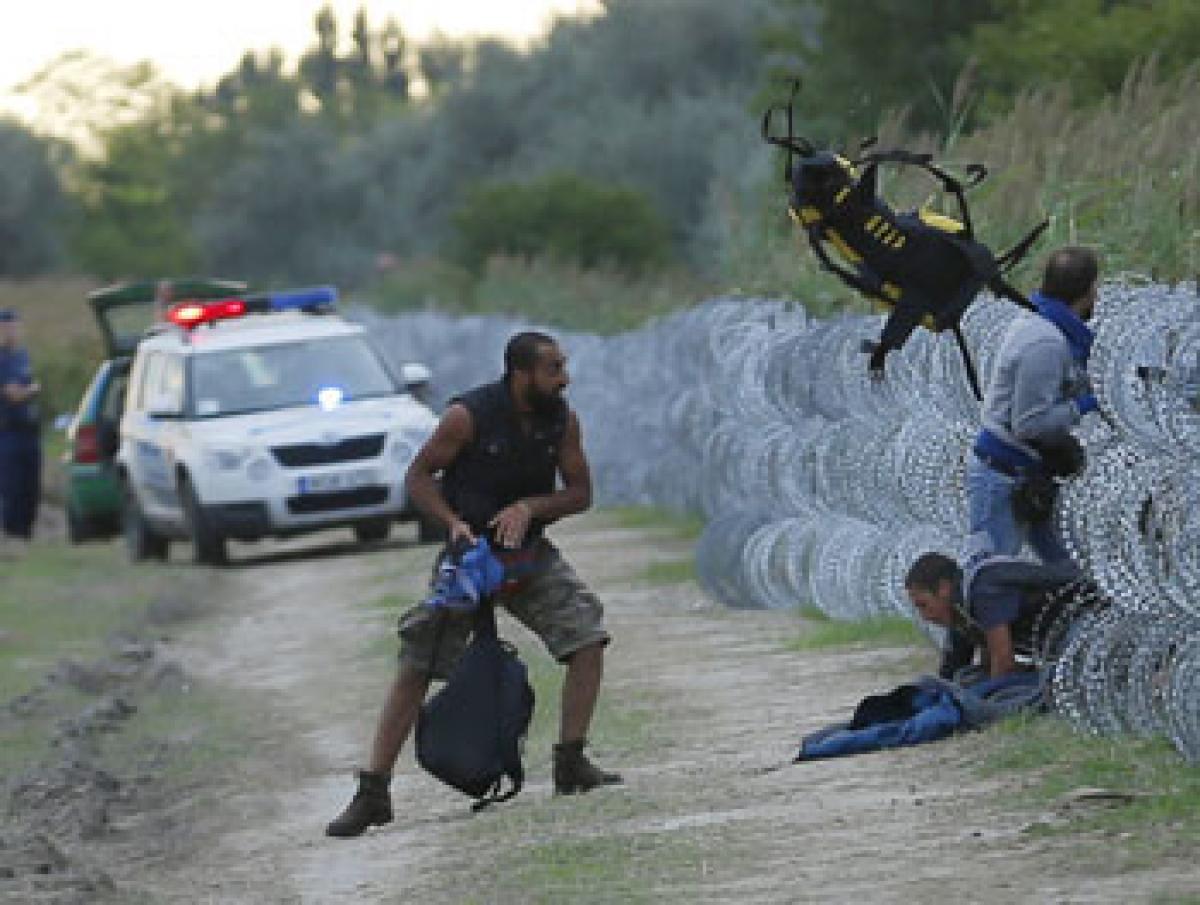Live
- Chanchalguda Jail Officials Say They Haven't Received Bail Papers Yet, Allu Arjun May Stay in Jail Tonight
- BJP leaders present evidence of illegal voters in Delhi, urge EC for swift action
- Exams will not be cancelled: BPSC chairman
- Nagesh Trophy: Karnataka, T.N win in Group A; Bihar, Rajasthan triumph in Group B
- YS Jagan condemns the arrest of Allu Arjun
- Economic and digital corridors to maritime connectivity, India and Italy building vision for future, says Italian Ambassador
- SMAT 2024: Patidar's heroics guide Madhya Pradesh to final after 13 years
- CCPA issues notices to 17 entities for violating direct selling rules
- Mamata expresses satisfaction over speedy conviction in minor girl rape-murder case
- Transparent Survey Process for Indiramma Housing Scheme Directed by District Collector
Just In

By any measure, it has been a year from hell for the European Union (EU). And if Britons vote to leave the bloc, next year could be worse.
 Not since 1989, the year the Berlin Wall fell and communism crumbled across eastern Europe, has the continent's geopolitical kaleidescope been shaken up so vigorously
Not since 1989, the year the Berlin Wall fell and communism crumbled across eastern Europe, has the continent's geopolitical kaleidescope been shaken up so vigorously
Brussels: By any measure, it has been a year from hell for the European Union (EU). And if Britons vote to leave the bloc, next year could be worse.
Not since 1989, the year the Berlin Wall fell and communism crumbled across eastern Europe, has the continent's geopolitical kaleidescope been shaken up so vigorously.
But unlike that year of joyous turmoil, which paved the way for a leap forward in European integration, the crises of 2015 have threatened to tear the Union apart and left it battered, bruised, despondent and littered with new barriers. The collapse of the Iron Curtain led within two years to the agreement to create a single European currency and, over the following 15 years, to the eastward enlargement of the EU and NATO up to the borders of Russia and Ukraine.
That appeared to confirm founding father Jean Monnet's prediction that a united Europe would be built out of crises. In contrast, this year's political and economic shocks over an influx of migrants, Greek debt, Islamist violence and Russian military action have led to the return of border controls in many places, the rise of populist anti-EU political forces and recrimination among EU governments.
European Commission President Jean-Claude Juncker, who describes his EU executive as the "last chance Commission", warned that the EU's open-border Schengen area of passport-free travel was in danger and the euro itself would be unlikely to survive if internal borders were shut.
Merkel has received little support from her EU partners in sharing the migrant burden. Most have insisted the priority is sealing Europe's external borders rather than welcoming more than a token number of refugees in their own countries. This is partly due to latent resentment of German dominance of the EU and payback for its reluctance to share more financial risks in the euro zone.
Some partners also accuse Berlin of hypocrisy over its energy ties with Russia, while friends such as France, the Netherlands and Denmark are simply petrified by the rise of right-wing anti-immigration populists at home.
Bulgaria and Italy denounced her support for a direct gas pipeline from Russia to Germany at a time when the EU is sanctioning Moscow over its military action in Ukraine and has forced the cancellation of a pipeline to Europe.
One problem likely to worsen in 2016 is that Europe's main leaders are politically weak and so preoccupied by domestic challenges that they are unable to take the necessary collective action. The conservative Merkel's survival in the chancellery hinges on her ability to bring down the number of refugees flooding into Germany next year and show she has migration under control. Without "Mutti" (Mummy), as she is affectionately known, the EU would be in even more dire straits.
France's influence in Europe is diminished by its economic weakness as Hollande struggles for re-election in 2017 against rising far-right populist Marine Le Pen and conservative predecessor Sarkozy.
British PM David Cameron cares only about finding a face-saving deal on changes in Britain's EU membership Terms in February to win a knife-edge referendum which he has hinted he hopes to hold sometime next year.
Cameron has effectively mortgaged Britain's future to an attempt to deprive immigrants from eastern EU countries of the same in-work benefits that low-paid British workers get, which many EU partners say would be illegal.
Given British public alarm over immigration, an anti-elite mood and age-old suspicion of Europe fanned by sceptical media, the referendum is an accident waiting to happen. If Europe's second-biggest economy and one of its two main military powers became the first member state ever to vote to leave the EU, it would be a shattering blow to the bloc's confidence and international standing.

© 2024 Hyderabad Media House Limited/The Hans India. All rights reserved. Powered by hocalwire.com







